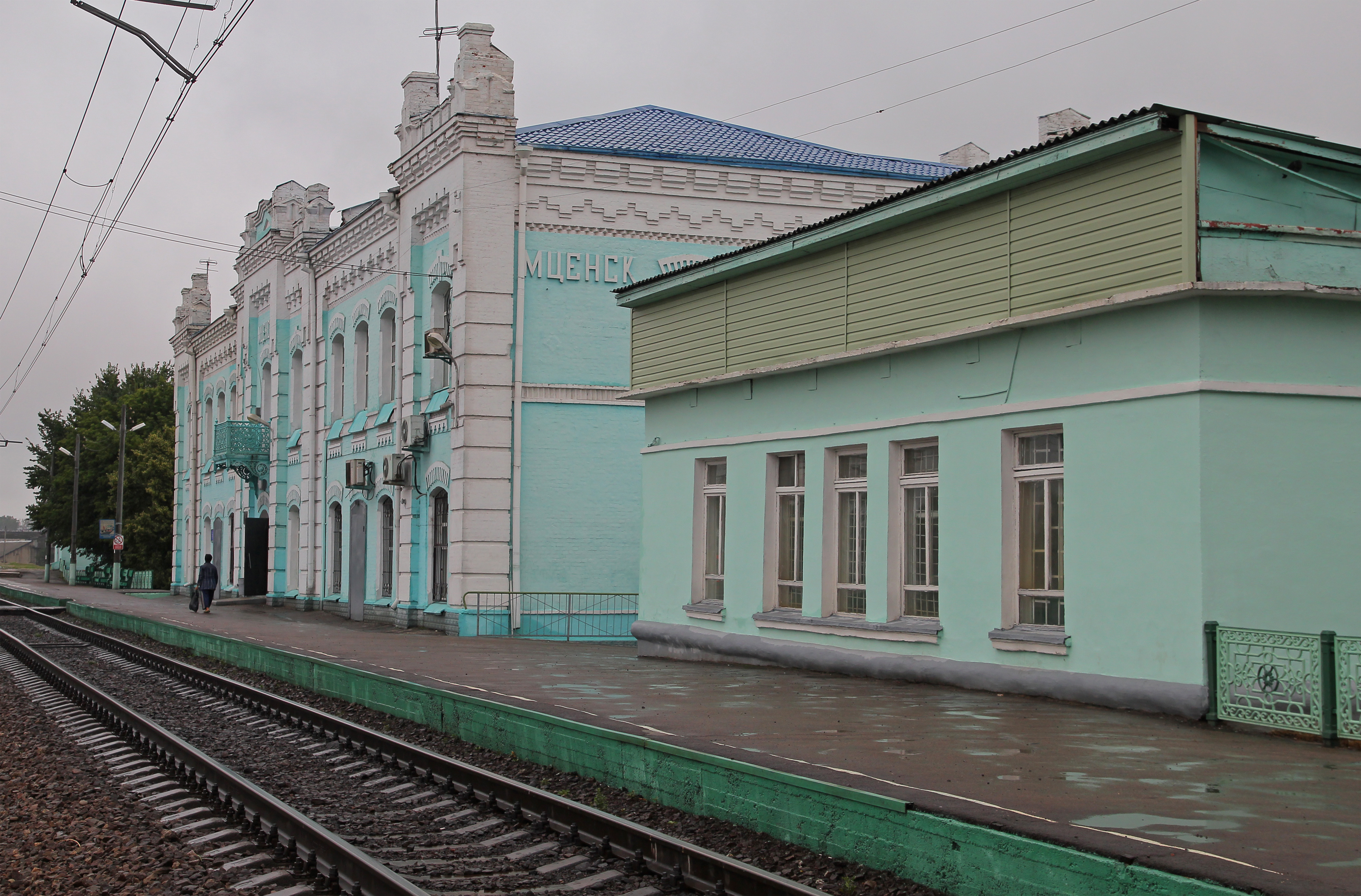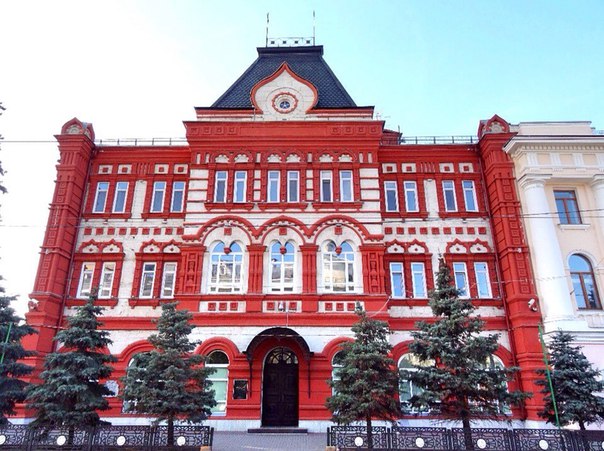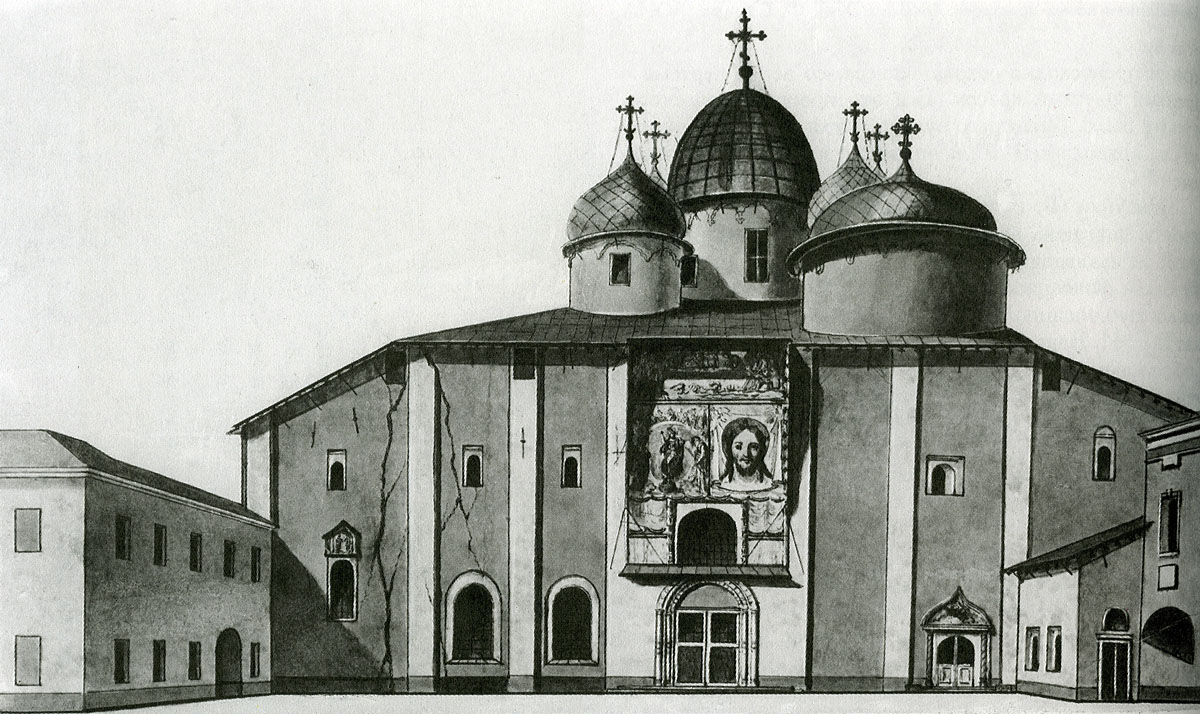|
Spasskoye-Lutovinovo
Spasskoye-Lutovinovo Spasskoye-Lutovinovo (russian: Спасское-Лутовиново ) was the childhood estate of Russian writer Ivan Turgenev, which he inherited after his mother's death. It is situated 10 km north of Mtsensk, near Oryol Oryol ( rus, Орёл, p=ɐˈrʲɵl, lit. ''eagle''), also transliterated as Orel or Oriol, is a city and the administrative center of Oryol Oblast situated on the Oka River, approximately south-southwest of Moscow. It is part of the Central Fed .... The house was built in 1778-1809, but was partially destroyed by a fire in May 1839. It was rebuilt in a simpler style. The estate is now a museum and a natural reserve, open to tourists and visitors. It is designated as an object of Russian cultural heritage of federal significance. References {{Authority control Literary museums in Russia Museums in Oryol Oblast Historic house museums in Russia Cultural heritage monuments in Oryol Oblast Objects of cultural heritage of Russia of f ... [...More Info...] [...Related Items...] OR: [Wikipedia] [Google] [Baidu] |
Ivan Turgenev
Ivan Sergeyevich Turgenev (; rus, links=no, Ива́н Серге́евич Турге́невIn Turgenev's day, his name was written ., p=ɪˈvan sʲɪrˈɡʲe(j)ɪvʲɪtɕ tʊrˈɡʲenʲɪf; 9 November 1818 – 3 September 1883 (Old Style dates: 28 October 1818 – 22 August 1883) was a Russian novelist, short story writer, poet, playwright, translator and popularizer of Russian literature in the West. His first major publication, a short story collection titled ''A Sportsman's Sketches'' (1852), was a milestone of Russian realism. His novel '' Fathers and Sons'' (1862) is regarded as one of the major works of 19th-century fiction. Life Ivan Sergeyevich Turgenev was born in Oryol (modern-day Oryol Oblast, Russia) to noble Russian parents Sergei Nikolaevich Turgenev (1793–1834), a colonel in the Russian cavalry who took part in the Patriotic War of 1812, and Varvara Petrovna Turgeneva (née Lutovinova; 1787–1850). His father belonged to an old, but impoverished Turge ... [...More Info...] [...Related Items...] OR: [Wikipedia] [Google] [Baidu] |
Mtsensk
Mtsensk (russian: Мценск) is a town in Oryol Oblast, Russia, located on the Zusha River (a tributary of the Oka) northeast of Oryol, the administrative center of the oblast. Population: 28,000 (1970). History It was first mentioned in the Nikon Chronicle in 1146 as a part of the Principality of Chernigov. The name comes from the Mtsena River, a tributary of the Zusha, beside which the fortress stood. In 1238, Mtsensk was destroyed by Batu Khan. Since 1320, it was under the rule of Lithuania, eventually becoming a part of the Muscovy in 1505. Since the beginning of the 19th century, Mtsensk was rapidly developing as an industrial town. During Operation Barbarossa, German armoured forces captured the town in the fall of 1941. In particular, troops of the 3rd Panzer Division, 4th Panzer Division, and Infantry Regiment Großdeutschland saw combat in the immediate vicinity. During the Battle of Kursk in 1943, Mtsensk served as the primary war zone. On 20 July 1943, Mtse ... [...More Info...] [...Related Items...] OR: [Wikipedia] [Google] [Baidu] |
Oryol
Oryol ( rus, Орёл, p=ɐˈrʲɵl, lit. ''eagle''), also transliterated as Orel or Oriol, is a city and the administrative center of Oryol Oblast situated on the Oka River, approximately south-southwest of Moscow. It is part of the Central Federal District, as well as the Central Economic Region. History Kievan Rus While there are no historical records, archaeological evidence shows that a fortress settlement existed between the Oka River and Orlik Rivers as early as the 12th century, when the land was a part of the Principality of Chernigov. The name of the fortress is unknown; it may not have been called Oryol at the time. In the 13th century, the fortress became a part of the Zvenigorod district of the Karachev Principality. In the early 15th century, the territory was conquered by the Grand Duchy of Lithuania. The city was soon abandoned by its population after being sacked either by Lithuanians or the Golden Horde. The territory became a part of the Tsardom of Rus ... [...More Info...] [...Related Items...] OR: [Wikipedia] [Google] [Baidu] |
Russian Cultural Heritage Register
The national cultural heritage register of Russia (russian: Единый государственный реестр объектов культурного наследия) is a registry of historically or culturally significant man-made Immovable property, immovable properties – landmark buildings, industrial facilities, memorial homes of notable people of the past, monuments, cemeteries and tombs, archaeological sites and cultural landscapes – man-made environments and natural habitats significantly altered by humans. The register continues a tradition established in 1947 and is governed by a 2002 law "On the objects of cultural heritage (monuments of culture and history)" (Law 73-FZ). The register is maintained by the Rosokhrankultura, Federal Service for Monitoring Compliance with Cultural Heritage Legislation (a branch of the federal Ministry of Culture (Russia), Ministry of Culture); the publicly available online database is hosted by the Ministry of Culture. Its primary ... [...More Info...] [...Related Items...] OR: [Wikipedia] [Google] [Baidu] |
Literary Museums In Russia
Literature is any collection of written work, but it is also used more narrowly for writings specifically considered to be an art form, especially prose fiction, drama, and poetry. In recent centuries, the definition has expanded to include oral literature, much of which has been transcribed. Literature is a method of recording, preserving, and transmitting knowledge and entertainment, and can also have a social, psychological, spiritual, or political role. Literature, as an art form, can also include works in various non-fiction genres, such as biography, diaries, memoir, letters, and the essay. Within its broad definition, literature includes non-fictional books, articles or other printed information on a particular subject.''OED'' Etymologically, the term derives from Latin ''literatura/litteratura'' "learning, a writing, grammar," originally "writing formed with letters," from ''litera/littera'' "letter". In spite of this, the term has also been applied to spoken or s ... [...More Info...] [...Related Items...] OR: [Wikipedia] [Google] [Baidu] |
Museums In Oryol Oblast
A museum ( ; plural museums or, rarely, musea) is a building or institution that cares for and displays a collection of artifacts and other objects of artistic, cultural, historical, or scientific importance. Many public museums make these items available for public viewing through exhibits that may be permanent or temporary. The largest museums are located in major cities throughout the world, while thousands of local museums exist in smaller cities, towns, and rural areas. Museums have varying aims, ranging from the conservation and documentation of their collection, serving researchers and specialists, to catering to the general public. The goal of serving researchers is not only scientific, but intended to serve the general public. There are many types of museums, including art museums, natural history museums, science museums, war museums, and children's museums. According to the International Council of Museums (ICOM), there are more than 55,000 museums in 202 countr ... [...More Info...] [...Related Items...] OR: [Wikipedia] [Google] [Baidu] |
Historic House Museums In Russia
History (derived ) is the systematic study and the documentation of the human activity. The time period of event before the invention of writing systems is considered prehistory. "History" is an umbrella term comprising past events as well as the memory, discovery, collection, organization, presentation, and interpretation of these events. Historians seek knowledge of the past using historical sources such as written documents, oral accounts, art and material artifacts, and ecological markers. History is not complete and still has debatable mysteries. History is also an academic discipline which uses narrative to describe, examine, question, and analyze past events, and investigate their patterns of cause and effect. Historians often debate which narrative best explains an event, as well as the significance of different causes and effects. Historians also debate the nature of history as an end in itself, as well as its usefulness to give perspective on the problems of the p ... [...More Info...] [...Related Items...] OR: [Wikipedia] [Google] [Baidu] |
Cultural Heritage Monuments In Oryol Oblast
Culture () is an umbrella term which encompasses the social behavior, institutions, and norms found in human societies, as well as the knowledge, beliefs, arts, laws, customs, capabilities, and habits of the individuals in these groups.Tylor, Edward. (1871). Primitive Culture. Vol 1. New York: J.P. Putnam's Son Culture is often originated from or attributed to a specific region or location. Humans acquire culture through the learning processes of enculturation and socialization, which is shown by the diversity of cultures across societies. A cultural norm codifies acceptable conduct in society; it serves as a guideline for behavior, dress, language, and demeanor in a situation, which serves as a template for expectations in a social group. Accepting only a monoculture in a social group can bear risks, just as a single species can wither in the face of environmental change, for lack of functional responses to the change. Thus in military culture, valor is counted a typi ... [...More Info...] [...Related Items...] OR: [Wikipedia] [Google] [Baidu] |
Objects Of Cultural Heritage Of Russia Of Federal Significance
Object may refer to: General meanings * Object (philosophy), a thing, being, or concept ** Object (abstract), an object which does not exist at any particular time or place ** Physical object, an identifiable collection of matter * Goal, an aim, target, or objective * Object (grammar), a sentence element, such as a direct object or an indirect object Science, technology, and mathematics Computing * 3D model, a representation of a physical object * Object (computer science), a language mechanism for binding data with methods that operate on that data ** Object-orientation, in which concepts are represented as objects *** Object-oriented programming (OOP), in which an object is an instance of a class or array ** Object (IBM i), the fundamental unit of data storage in the IBM i operating system * Object (image processing), a portion of an image interpreted as a unit * Object file, the output of a compiler or other translator program (also known as "object code") * Object, an ... [...More Info...] [...Related Items...] OR: [Wikipedia] [Google] [Baidu] |
Tourist Attractions In Oryol Oblast
Tourism is travel for pleasure or business; also the theory and practice of touring, the business of attracting, accommodating, and entertaining tourists, and the business of operating tours. The World Tourism Organization defines tourism more generally, in terms which go "beyond the common perception of tourism as being limited to holiday activity only", as people "travelling to and staying in places outside their usual environment for not more than one consecutive year for leisure and not less than 24 hours, business and other purposes". Tourism can be domestic (within the traveller's own country) or international, and international tourism has both incoming and outgoing implications on a country's balance of payments. Tourism numbers declined as a result of a strong economic slowdown (the late-2000s recession) between the second half of 2008 and the end of 2009, and in consequence of the outbreak of the 2009 H1N1 influenza virus, but slowly recovered until the COVID-19 pa ... [...More Info...] [...Related Items...] OR: [Wikipedia] [Google] [Baidu] |





.jpg)

